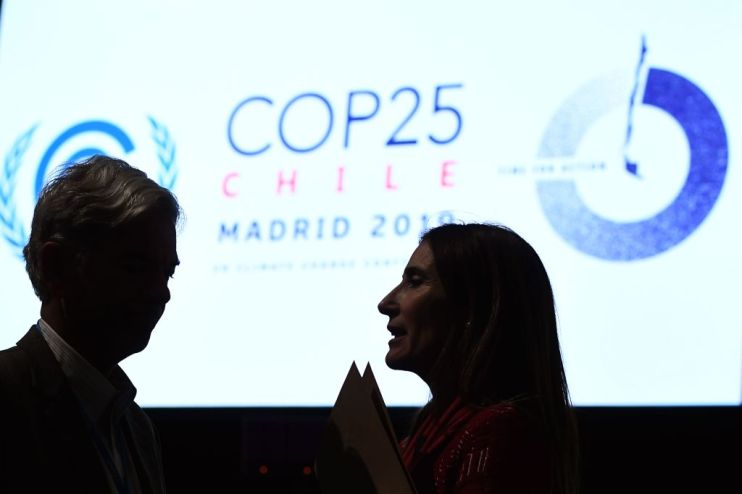UN climate change conference closes amid criticism

The UN climate change summit in Madrid drew to a belated and acrimonious end today as a small number of large states resisted pressure to increase efforts to combat global warming.
Activists and delegates from smaller nations were critical of countries such as the US, China, Australia, Brazil and Saudi Arabia, who were said to have blocked bolder action.
Read more: UN climate change summit opens in Madrid amid last chance warnings
In its closing draft, the conference only endorsed a modest declaration on the “urgent need” to reduce the gap between nations’ existing greenhouse gas pledges and the temperature goals of the Paris agreement.
The summit also failed to come to a decision on global carbon markets, which had been earmarked as a flagship issue for the conference.
UN secretary-general Antonio Guterres took to Twitter to vent his feelings. He said:
“I am disappointed with the results of Cop25. The international community lost an important opportunity to show increased ambition on mitigation, adaptation and finance to tackle the climate crisis.
“But we must not give up, and I will not give up.”
Chilean environment minister Carolina Schmidt, who presided over the talks, said: “We are of mixed emotions.”
An earlier draft of the conference’s concluding text attracted widespread anger, with campaigners arguing that its wording was so weak it betrayed the spirit of the Paris agreement.
The final version was also met with disappointment, with the document considered a weak riposte to a year in which extreme weather patterns such as flooding and wildfires have become more intense.
Greenpeace East Asia policy advisor Li Shuo said: “COP25 demonstrated the collective ambition fatigue of the world’s largest (greenhouse gas) emitters.”
The talks, which finished nearly two days late, stalled amid disputes over the rules for international carbon trading, with Brazil and Australia reported to be among the main holdouts.
Smaller nations, many of which are expected to suffer worst from climate change, failed to win the financial concessions they had hoped for.
Read more: EU Commission unveils European green deal in Brussels
A representative from Tuvalu, the Pacific Island nation at risk of catastrophic damage from rising sea levels, said:
“There are millions of people all around the world who are already suffering from the impacts of climate change. Denying this fact could be interpreted by some to be a crime against humanity.”